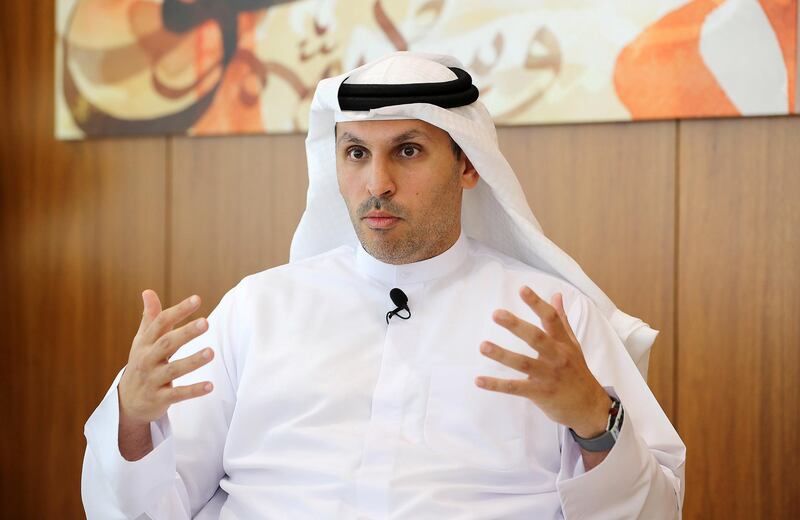Mubadala Investment Company (MIC), Abu Dhabi's strategic company with Dh465.5 billion in assets, is exploring opportunities to invest in Saudi Arabia as the kingdom opens up the biggest Arab economy to foreign investors, its group chief executive said on Thursday.
"Absolutely. We are looking very closely at Saudi Arabia," Khaldoon Al Mubarak told the National in an exclusive interview in Abu Dhabi. "Saudi is obviously a market [for us]. We can see what's happening in Saudi and we are following it very closely and we are very excited about the possibilities."
Mubadala Investment is already a co-investor with the Public Investment Fund (PIF), Saudi Arabia's sovereign wealth fund, in SoftBank Group's US$100 billion Vision Fund. The Abu Dhabi company has plans to invest $15bn in the investment vehicle while PIF is expected to contribute as much as $45bn to the Japanese-led tech fund.
The kingdom, the world's top oil exporter, is heading into the right direction and its economy presents investment avenues which could be a good fit for Mubadala Investment's strategy, Mr Al Mubarak said.
_______________
Read more:
[ Mubadala’s Nova and Borealis form US$1.7bn US petrochemicals JV with France’s Total ]
[ Mubadala swings to Dh4.2bn profit in the first half of 2017 ]
_______________
"[There's] nothing that I can comment on right now but I can tell you for sure, we are looking, and we are working hard to be investing in Saudi Arabia," he said when asked if a deal is already on the table. "We think the economic story has a lot of opportunities, particularly in the areas where Mubadala is very interested."
Saudi Arabia, Opec's biggest oil producer, still relies heavily on the sale of hydrocarbons for revenues. It is trying to wean its economy off oil after crude prices slumped from a mid-2014 peak of $115 a barrel to lows of below $30 per barrel in 2016. Prices are now relatively stable at around the $58 per barrel mark. But the kingdom's finances remain under pressure and it has already laid out its economic transformation agenda under its Vision 2030 programme.
The privatisation of government-controlled assets and increased foreign direct investments (FDI), along with an increased private sector contribution to the country's economy, are at the heart of the kingdom's economic overhaul plans. Saudi Arabia seeks to increase FDI as a percentage of gross domestic product, to 5.7 per cent by 2030 from 3.8 per cent, according to the Vision 2030 documents. The target for the private sector's contribution to the economy is set at 65 per cent from about the base level of 40 per cent in the same period.
Saudi Aramco, the world's biggest oil producer, is among the assets marked for privatisation through plans to sell less than a 5 per cent stake to the public next year in an estimated $100 billion IPO, which could possibly be the biggest-ever global share sale transaction.
Mubadala Investment, which swung to profitability with 2017 first-half profit of Dh4.2bn against a loss of Dh4.7bn in a year-earlier period, will seek investments opportunities across sectors in Saudi Arabia.
"Honestly, across the board," Mr Al Mubarak said when asked if Mubadala Investment will be interested in acquiring stakes in downstream assets in the kingdom. "Every sector that we have [invested in], I think we will have opportunities in Saudi. We will be looking at Saudi and I think you will see us there for sure."
Mubadala Investment invests primarily in sectors such as petroleum, petrochemicals, aerospace, ICT, semiconductors, metals and mining, renewable energy, healthcare and utilities. The firm, whose portfolio of investments spans 13 sectors across more than 30 countries, manages financial holdings and owns stakes in local, regional and global firms including Austria's Borealis and OMV, Bahrain-based Investcorp Bank, UAE's Emirates Global Aluminium, telecom operator Du, renewable energy firm Masdar and the country's biggest-listed contracting firm Arabtec Holding.







